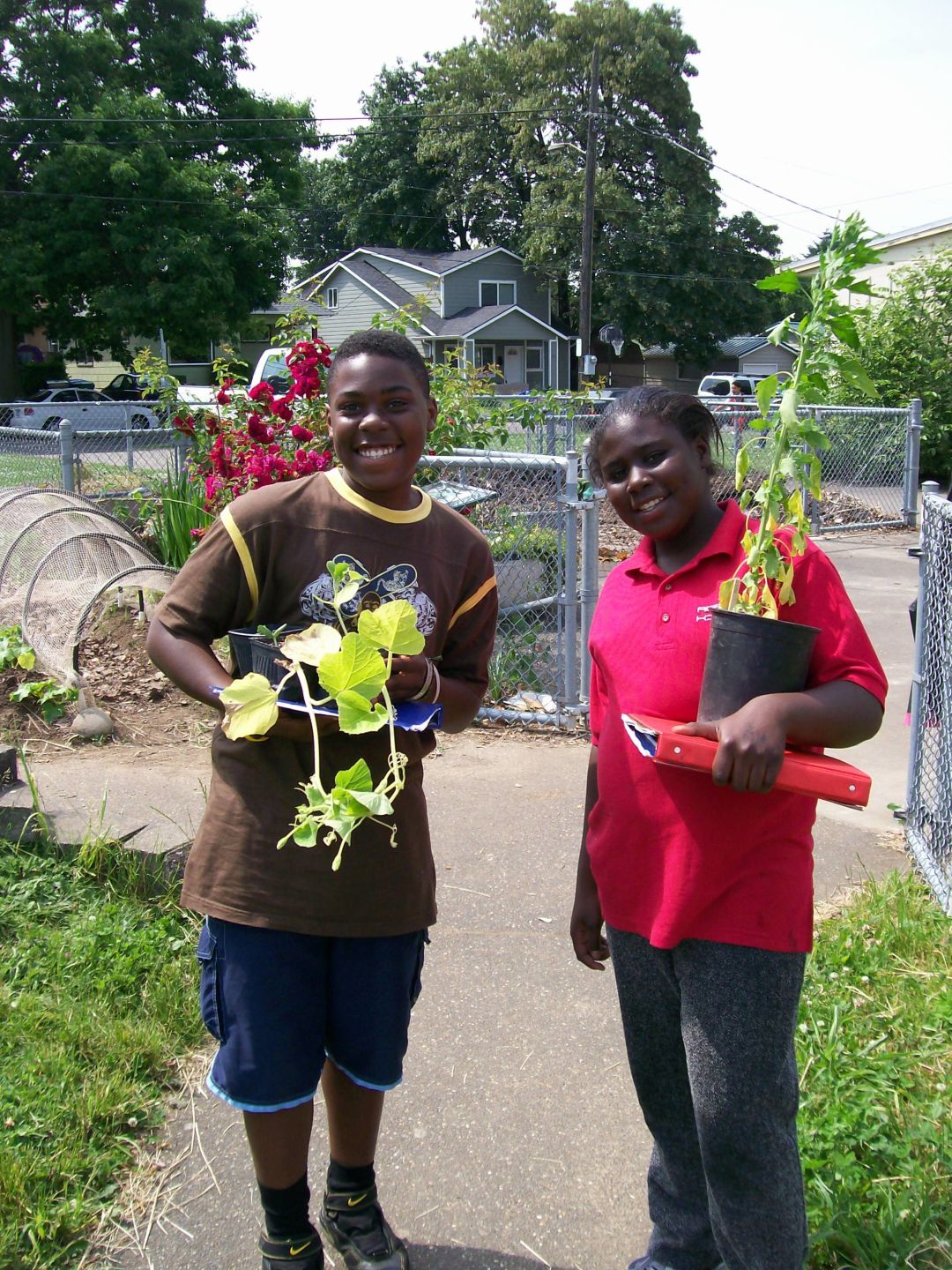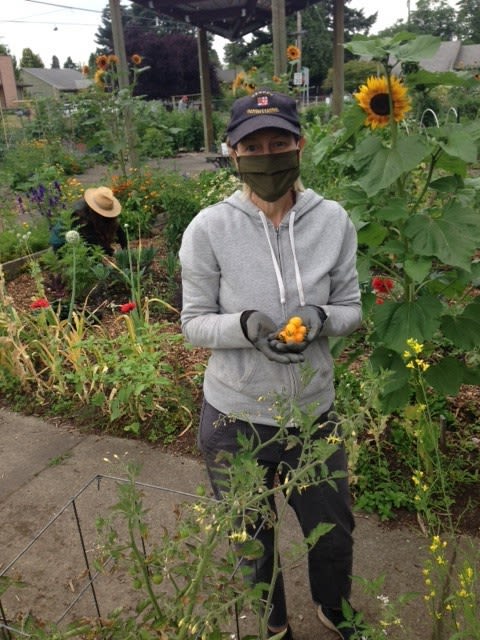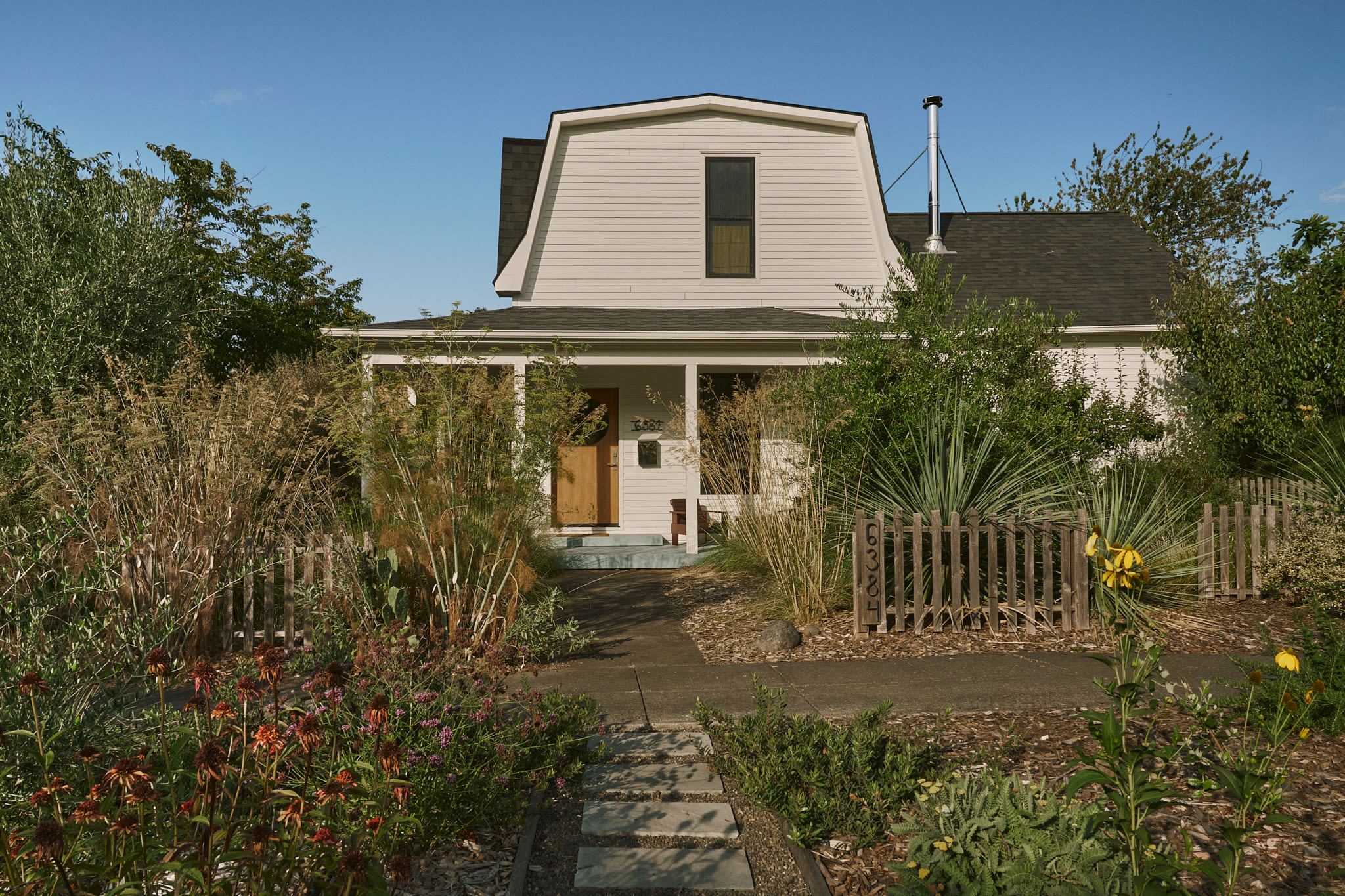Community Garden Leaders Aim to Bring Healing, Food Sovereignty to Portland

Participants in the Portland Community Gardens program
Chanelle Crosby says that, as a Black person whose ancestors were brought to this country to work the land, her interest in farming stems from her family history and a yearning to heal from land-based trauma, “to reestablish the relationship and ancestral practices that I had lost track of.”
As a farmer and botanical specialist with Portland Community Gardens, a Portland Parks & Recreation program since 1975, Crosby helps with garden plot outreach, site projects, policy enforcement, and more. The program, she says, represents a diverse Portland, offering assistance in more than 25 languages, with many of the program participants looking to connect to their cultural heritages.

A program participant at Rigler Community Garden during the summer
When the coronavirus hit earlier this year and panic-buying ensued, Crosby says it was “a shock to the system” and got many people thinking about food access, with gardeners concerned about their plots. After Oregon Gov. Kate Brown established the state’s Stay Home, Save Lives orders, which encouraged Oregonians to stay inside in order to curb the spread of the novel coronavirus, Crosby fielded questions from gardeners about the status of the Community Gardens program.
“We have a lot of folks in the program that have immigrated from other countries, and they speak to the ability for them to grow food that they’re used to as a cultural practice, also a sense of food sovereignty. I think that a lot people have started to see it that way,” Crosby says. “They know that if trucks can’t make it to the grocery store, they can go to their garden and get food.”
The city of Portland later deemed the program essential, and in March, Portland Community Gardens staff issued an update with new rules and guidelines, stating, “Gardening plays an important role in all our lives, allowing us to connect with the land and to provide food for our families. We appreciate all your work in the gardens and hope they bring you some moments of peace in the coming weeks.” The program’s waitlist has since grown exponentially, says Crosby.
Much research has been done on the physical and mental health benefits of gardening or therapeutic horticulture. (Legacy Health in Portland offers “therapeutic gardens,” saying that gardens in healing settings often help “patients to leave the hospital faster, take less pain medication and suffer fewer complications.”) For Crosby, gardening and tending to the land is a transformative experience “and a really vital piece for [my] health and wellness. Especially during the really challenging times, it’s really grounding.”
For Federico Ramirez, a Portland Parks & Recreation maintenance worker specializing in community gardens and environmental education, it’s a chance to heal as the pandemic has taken a toll on him. “My own Portland Community Garden plot gives me space to take care of myself. Eating healthy, planting my own food; it combats feelings of isolation, of emotional, physical, and spiritual disconnection,” Ramirez says. “Now more than ever we must support the Portland Community Gardens program and our communities in general. It is a necessity. Now more than ever we see that life is truly valuable, we cannot put a price on having healthy food and a place to connect with nature.”
There are 57 community gardens located throughout the Portland area, developed and operated by volunteers and Portland Parks & Recreation staff, offering a variety of activities. To sign up for a plot, join a waitlist at a garden in your neighborhood, and inquire about scholarship opportunities, visit portland.gov/parks/community-gardens




